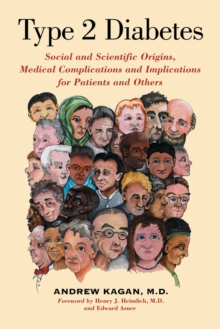
Alzheimer's Disease and Infectious Causes : The Theory and Evidence Paperback / softback
by Elaine A. Moore
Part of the McFarland Health Topics series
Paperback / softback
Description
With the recent discovery that amyloid beta protein, the cause of plaques in Alzheimer's disease, is an antimicrobial peptide produced in response to infection, many researchers are focusing on the role infection plays in the development of Alzheimer's disease.
Brain studies have also identified a number of different viruses, bacteria, fungi, and protozoa in the postmortem brain specimens of Alzheimer's patients. Infection (particularly chronic, latent and persistent infections) causes an immune response that leads to inflammation and brain cell degeneration, which are characteristic features of Alzheimer's disease.
Sources of infection in Alzheimer's disease vary from childhood infections to gut microbes that find their way into the brain as a result of aging, leaky gut syndrome, and increased permeability of the blood brain barrier.
Studies and ongoing clinical trials show that treatment of viral and bacterial infections, as well as restoring a healthy balance to the gut microbiome, can reduce disease risk and improve symptoms in patients with Alzheimer's disease.
This book serves as an introduction to the human microbiome and the role that infection plays in the development of Alzheimer's disease.
Information
-
Out of stock
- Format:Paperback / softback
- Pages:156 pages, 15 photos
- Publisher:McFarland & Co Inc
- Publication Date:30/04/2020
- Category:
- ISBN:9781476678610
Information
-
Out of stock
- Format:Paperback / softback
- Pages:156 pages, 15 photos
- Publisher:McFarland & Co Inc
- Publication Date:30/04/2020
- Category:
- ISBN:9781476678610










